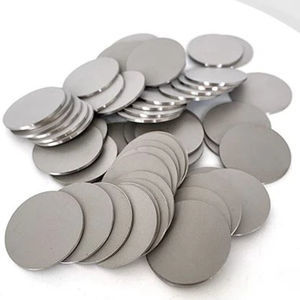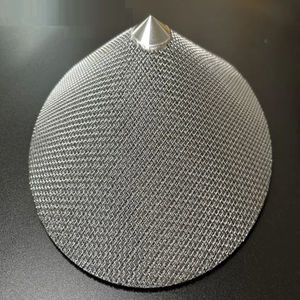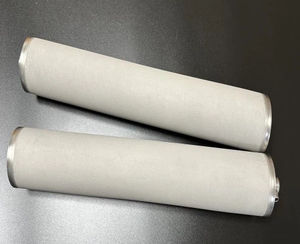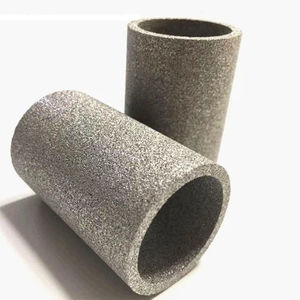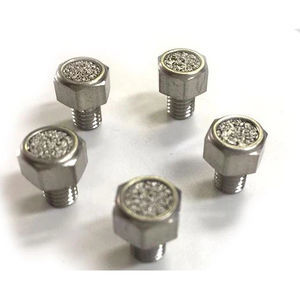
- Hydraulics - Pneumatics
- Filter and Separator
- Stainless steel filter medium
- Baoji Yinggao Metal Materials Co., Ltd.

- Products
- Catalogs
- News & Trends
- Exhibitions
Stainless steel filter element gasliquidhigh-efficiency
Add to favorites
Compare this product
Characteristics
- Material
- stainless steel
- Applications
- liquid, gas
- Other characteristics
- high-efficiency, sintered, for high temperatures
- Pore size
Max.: 100 µm
Min.: 0.45 µm
Description
Metal powder serves as the only raw material for the sintered metal powder filter; no binders are used. It is generated by cold isostatic pressing and then sinters at high temperatures. By adjusting the process parameters and metal powder particle size, the pore size and distribution of the component can be changed. Utilize the pore structure, material composition, compressive strength and other characteristics of different filter materials to develop filter products suitable for users.
When the filter cake on the surface of the sintered metal powder filter element reaches a certain thickness, due to its high-strength performance characteristics, by backwashing or backflushing the filter element under a specific reverse pressure, the filter element can be cleaned and reused.
Strong resistance to corrosion
An inert metal with exceptional corrosion resistance is titanium. Strong alkali and strong acid media can be filtered using the titanium metal rod filter element. It has a wide range of applications in the chemical industry and in the filtering of the pharmaceutical industry's organic lysozyme production process.
Good tolerance to high temperatures
The titanium filter element has a high temperature resistance that goes up to 300°C. In operational situations with high temperatures, this function is frequently used. The temperature resistance of the filter element made of polymer materials is normally limited to 50°C. The support and filter membranes will alter if the temperature goes beyond 50°C.
Other Baoji Yinggao Metal Materials Co., Ltd. products
Microporous Filter Components and Microporous Filter Elements
Related Searches
- Filter cartridge
- Industrial filter cartridge
- Fine filter cartridge
- Water filter cartridge
- Filter element
- Pleated filter cartridge
- Chemical product filter cartridge
- Gas filter element
- Chemical filter cartridge
- Liquid filter element
- Metal filter cartridge
- Oil filter cartridge
- Foodstuff filter cartridge
- Beverage filter cartridge
- High-flow filter cartridge
- High-efficiency filter cartridge
- Food filter cartridge
- Filter cartridge for food applications
- Solvent filter cartridge
- Filter cartridge for chemical applications
*Prices are pre-tax. They exclude delivery charges and customs duties and do not include additional charges for installation or activation options. Prices are indicative only and may vary by country, with changes to the cost of raw materials and exchange rates.


